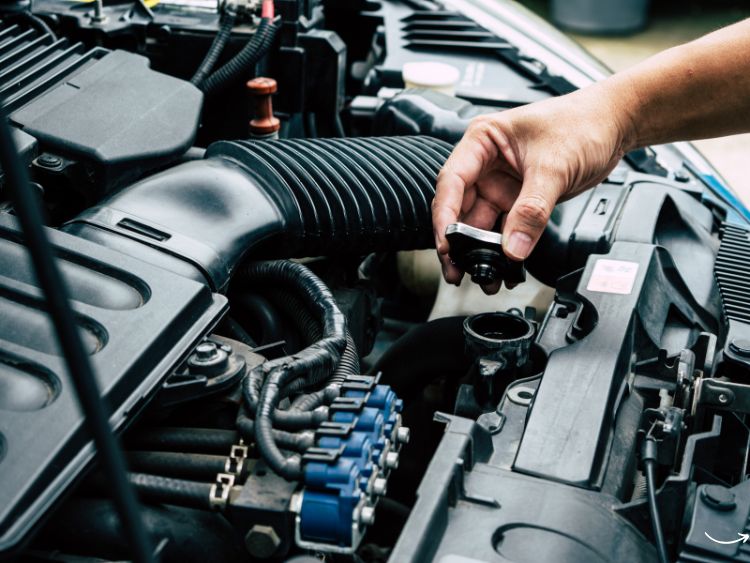Ever had your car fail to start on a chilly morning? Frustrating, right? Your car’s battery plays a vital role in keeping things running smoothly, but like all good things, it doesn’t last forever. When the time comes to replace it, you need to make an informed choice. This article breaks down everything you need to know about automotive replacement batteries, from types and maintenance tips to FAQs and trusted brands.
Why Are Automotive Replacement Batteries So Important?
Your car battery does more than just start the engine. It powers essential components like the lights, radio, and dashboard electronics. Without a fully functional battery, your car is as useful as a fancy paperweight.
Key Functions of a Car Battery:
- Starting the Engine: Provides the initial power to ignite the engine.
- Powering Accessories: Supports electrical systems when the engine isn’t running.
- Voltage Stabilization: Regulates voltage to prevent damage to electrical components.
Signs It’s Time to Replace Your Battery
Nobody wants to deal with a dead battery in the middle of nowhere. Keep an eye out for these telltale signs:
- Slow Engine Crank: Does your engine sound sluggish when starting?
- Dim Lights: Flickering or dim headlights can indicate a weak battery.
- Dashboard Warning Light: Most modern cars alert you to battery issues.
- Swollen Battery Case: Extreme temperatures can warp the battery casing.
- Corroded Terminals: Check for white, chalky residue around the terminals.
Types of Automotive Replacement Batteries
Not all car batteries are created equal. Picking the right type depends on your vehicle and driving habits. Here’s a breakdown:
1. Lead-Acid Batteries
- Pros: Affordable and widely available.
- Cons: Requires regular maintenance and has a shorter lifespan.
- Best For: Standard vehicles.
2. Absorbent Glass Mat (AGM) Batteries
- Pros: Durable, spill-proof, and great for vehicles with advanced electronics.
- Cons: More expensive than lead-acid batteries.
- Best For: Luxury cars and vehicles with start-stop technology.
3. Lithium-Ion Batteries
- Pros: Lightweight and long-lasting.
- Cons: Pricey and not as commonly used in standard cars.
- Best For: High-performance and electric vehicles.
How to Choose the Right Battery for Your Car
1. Check the Owner’s Manual
Your vehicle manufacturer knows best. The manual lists the ideal specifications for your battery.
2. Consider Your Driving Habits
- Short trips? Opt for a battery designed to handle frequent starts and stops.
- Off-roading or harsh weather driving? Look for a robust, high-capacity option.
3. Pay Attention to Cold Cranking Amps (CCA)
If you live in a cold climate, a higher CCA rating ensures your car will start even in freezing temperatures.
4. Look for a Warranty
A good warranty can save you money and stress if something goes wrong.
Top Automotive Replacement Battery Brands
When it comes to reliability, these brands consistently deliver:
- Optima Batteries: Known for their longevity and performance.
- DieHard: A trusted name for decades, offering a variety of options.
- Exide: Balances quality with affordability.
- Odyssey: Perfect for high-performance vehicles.
- ACDelco: Backed by General Motors, ideal for GM vehicles.
How to Maintain Your Car Battery
Want to extend the life of your automotive replacement battery? Here’s how:
- Keep It Clean: Regularly remove dirt and corrosion from the terminals.
- Avoid Short Trips: Frequent short drives prevent the battery from fully charging.
- Check Voltage: Use a multimeter to ensure your battery is in good condition.
- Secure the Battery: Loose batteries can vibrate and get damaged.
- Turn Off Accessories: Don’t leave lights or the radio on when the engine’s off.
Common Questions About Automotive Replacement Batteries
How long does a car battery last?
Most car batteries last 3-5 years, but factors like climate and driving habits can affect their lifespan.
Can I replace my car battery myself?
Absolutely! If you’re comfortable with basic tools and follow the owner’s manual, it’s a DIY-friendly task.
What’s the best battery for extreme climates?
For hot or cold conditions, AGM batteries or those with high CCA ratings perform best.
How do I dispose of an old car battery?
Take it to an auto parts store or recycling center. Batteries contain harmful chemicals, so never throw them in the trash.
Is a more expensive battery always better?
Not necessarily. Choose a battery that fits your car’s needs and your budget.
Summary
Automotive replacement batteries are a crucial component of your vehicle, ensuring it starts and powers smoothly. By understanding the types, choosing the right one, and maintaining it properly, you’ll save yourself time, money, and frustration. Whether you’re cruising in the city or braving snowy roads, the right battery makes all the difference.
Authoritative Links
For further reading, check out these reliable sources:
- Battery Council International: www.batterycouncil.org
- Consumer Reports on Car Batteries: www.consumerreports.org/car-batteries
- U.S. Department of Energy: www.energy.gov/eere/vehicles/vehicle-batteries







